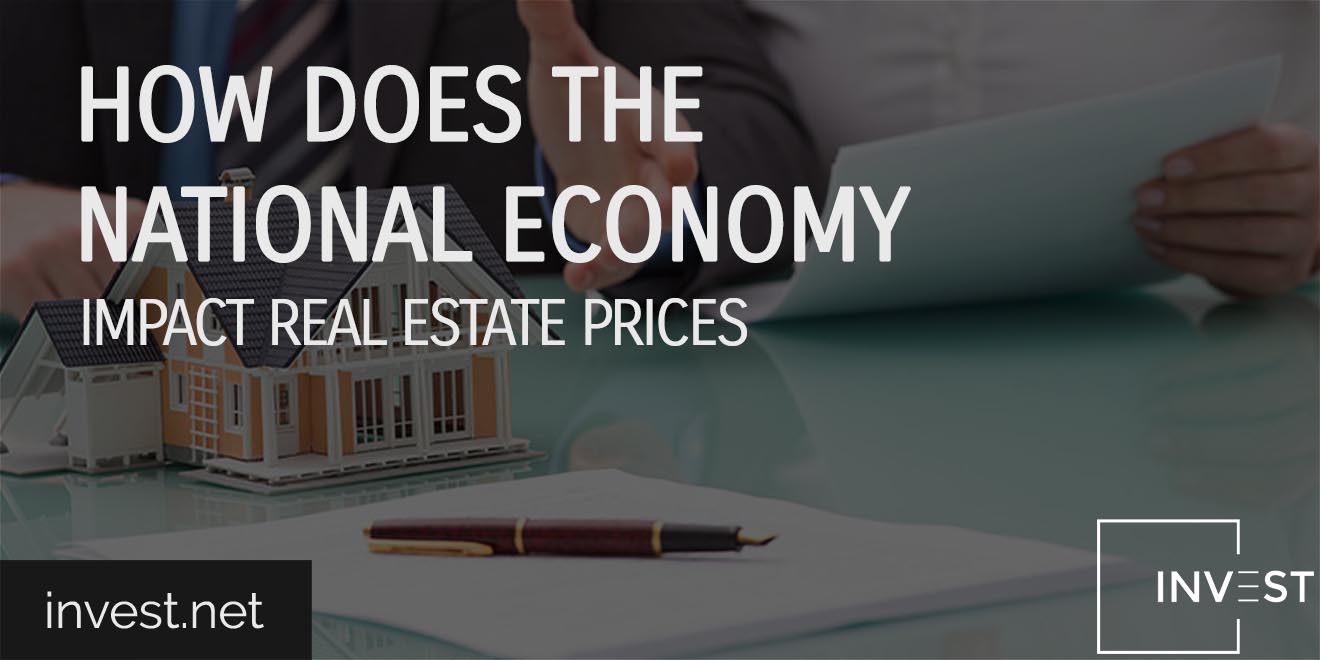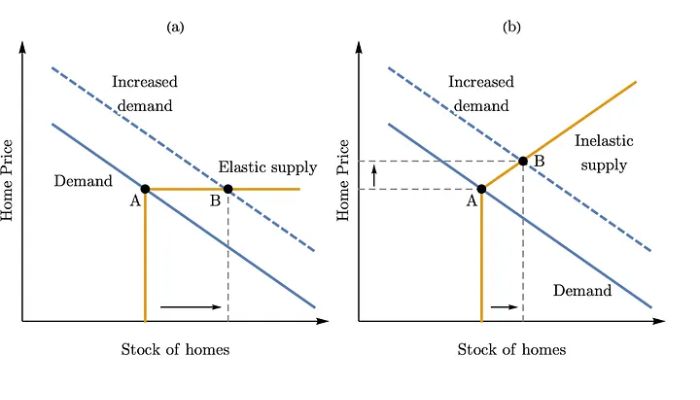


“It’s the economy, stupid.”
Originally coined by James Carville in the context of American politics, this phrase holds meaning across disciplines. The economy is a massive structural behemoth that affects nearly all of our daily interactions in some way – and better understanding it can help us make better decisions across the board.
Of course, there is no better landscape for applying economic understanding than in the realm of investments – at least, ostensibly. If you could somehow perfectly understand our economy, along with all the little interactions within it, you could easily turn even a small lump of startup capital into an absurd volume of wealth.
But therein lies the problem: you can’t fully understand the economy. No one can.
So exactly how much does the national economy impact real estate prices?
And how can you apply this knowledge to procure better turnkey real estate investments?
Sometimes, you’ll hear people in deep debates about what should be an objective issue; one economics expert insists the economy is doing great, while another asserts it’s doing terribly, while still another believes it could go either way.
Why is this the case?
To put it succinctly, the national economy is complicated – and not easily reducible. Broadly, the economy encompasses the performance of countless interrelated markets, organizations, and individuals.
To give a brief snapshot, here are just a few of the factors and economic indicators that experts examine to determine how well the economy is doing:
Rarely do these figures coalesce to form a clear picture, and even when they do, there may be pieces of contradictory evidence or reasons to doubt mainstream conclusions.
In other words, the “big picture” is always a bit fuzzy and open to interpretation, even under ideal circumstances.
How exactly does the national economy impact real estate prices?
The short answer is through supply and demand.

When the economy is doing well across the board, real estate prices tend to rise. People are employed, making lots of money, enjoying rising equity, and are generally optimistic about the future; this drives them to purchase real estate in larger numbers and for higher prices, increasing buying competition and driving prices up.
Conversely, when people are unemployed, underemployed, or otherwise pessimistic, the buying frenzy grinds to a halt – and prices tend to fall back down.
However, things get significantly more complicated the deeper you look.
Certain economic factors are responsible for putting pressure on real estate prices, in one direction or the other – and the effects are not always intuitive. For example, high rates of inflation are typically seen as a sign of a weak or bad economy, yet they can be beneficial for homeowners who enjoy rising real estate prices and devaluation of existing debt.
Some investors also like to play a meta game, planning their actions in response to perceptions about the economy and influencing new effects in the process. For example, in a relatively bad economy, when real estate prices decline, real estate investors see amazing buying opportunities, sometimes flooding the market and preventing prices from falling too far down.
As you can see, some of these effects are somewhat contradictory; but another way to see this is that these are natural stabilizing forces in a complex market-driven economy. In any case, it's clear that the average investor can't make a simple summary of broad economic performance as a driving factor for their real estate investing decisions. There's simply too much nuance in play.
We also need to acknowledge that a single snapshot of the economy can't tell you much about its momentum, just as a photograph of a runner can't tell you how fast they're running. When considering real estate decisions, we need to think about longer-term time horizons.
The economy has taken so many surprising twists and turns – such as catastrophic crashes that rebounded practically overnight and prolonged bull runs that defied all expectations – that it's not worth spending time speculating about how the economy is going to perform 10 or 20 years from now. But we can make reasonable speculations about the big picture; based on all the historical data we have and our current understanding of the variables, it seems like real estate prices are going to increase predictably for decades, if not centuries to come.
If you're trying to time the market, understanding the economy, business cycles, and real estate market cycles is imperative – and even then, you'll be prone to wrong predictions.
But if you invest in real estate with a long enough time horizon, those factors cease to be important. If you hold your real estate portfolio for 30 years or longer, even a new Great Depression in the middle of that era won't be enough to totally derail your strategy.
Next, keep in mind that the national economy has only a limited impact on local market dynamics. While the broader economy is doing well, certain local neighborhoods may be totally impoverished. While the broader economy is doing poorly, certain local neighborhoods may be absolutely flourishing.
In the United States, there are always countless neighborhoods where you can find amazing properties for reasonable prices – which is one reason why there are so many foreign investors interested in building their portfolios here. If you know where to look, you can find perfect buying opportunities regardless of what the broader economy is doing. A healthier macroeconomy simply means there will likely be more thriving communities than usual.
If you find an amazing deal on a turnkey single family rental property, does it really matter what the rest of the economy is doing? Let's say, for $200,000, you can purchase a property that's going to generate $3,000 in gross monthly revenue, quite reliably. The neighborhood looks good, you qualify for a reasonable mortgage, and because it's a turnkey property, it will require no initial repairs before you start listing it as available for rent.
Wouldn't you purchase this, regardless of broad, national economic conditions?
Don't expect to find a property like this every day. The point is, you need to examine the dynamics of an individual deal as a priority over whatever happens to be going on in the national economy.
So what's the right approach here? How should you study and consider the national economy as you anticipate changes in real estate prices and navigate this space as an investor?
Are you looking at the national economy to better understand the context of your next real estate purchase?
Good! You should be.
But there’s a lot more to finding a good deal on a turnkey real estate property. If you’re ready to commence the next phase of your search, start here!
